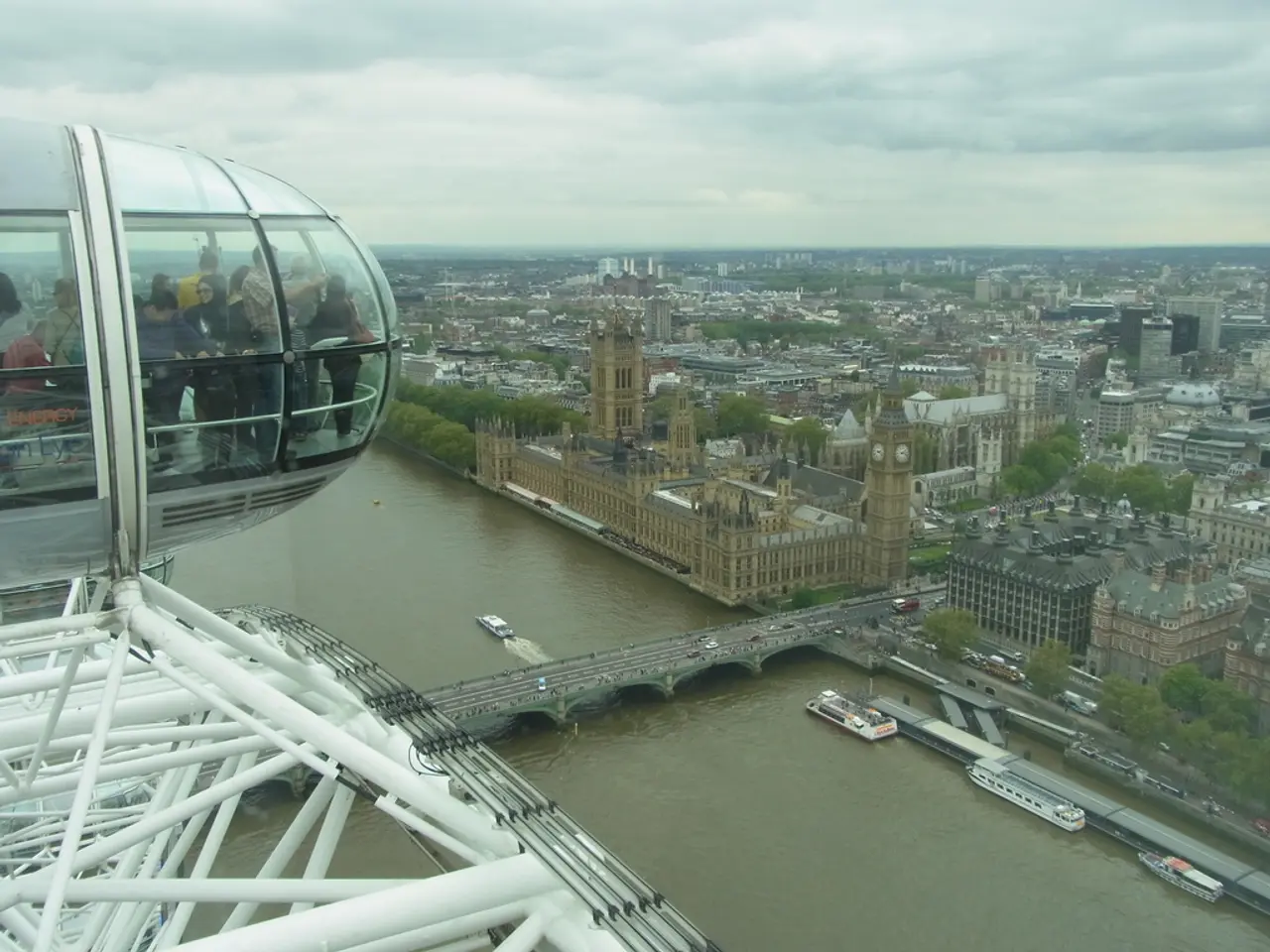Council Tax Hike: Anticipated Rise by 5.1% amid North-South Standoff
Higher Council Tax in the North East: Inequality in Funding and Service Delivery
A new survey by the Chartered Institute of Public Finance and Accountancy (CIPFA) has raised concerns about the disparity in council tax levels between London and the rest of the country, with the North East seeing significantly higher rates for the 2024/25 financial year.
The average band D council tax in Greater London is expected to be £1,894, while in the Northeast it will be £2,315. Iain Murray, director of public financial management at CIPFA, has expressed concern about the inadequacy of funds raised from council tax increase in some places to ensure proper maintenance of public services.
Rob Whiteman, CEO of CIPFA, and Iain Murray's comments echo those of Murray, criticizing the government for presiding over a failing funding system. Whiteman commented that the rise in council tax is an example of the government's presiding over a failing funding system, while Murray also highlights the persistent council tax gap between London and the rest of the country as a reflection of regional inequalities.
According to the survey, £783m of the total council tax requirement will be gathered from parish precepts, and £609m will be raised through the adult social care precept flexibility. The total council tax requirement for England is estimated to be £41.2bn, with an average band D council tax expected to increase by £106 (5.1%) compared to the previous financial year.
The survey leaves unanswered questions about the desired level and funding of public services in England. However, it does suggest a need for systematic reform in the public sector model. The key factors explaining the disparity between London and the North East include central government funding and fiscal devolution, spending needs and economic differences, council tax base and collection rates, and policy and cap constraints.
London councils often receive more substantial central government grants and funding specific to the capital, which helps keep council tax rates lower. Conversely, councils in the North East have experienced proportionally greater cuts in government funding over past years, forcing them to raise council tax to fill budget gaps. The North East typically has higher needs for social care, housing support, and other public services due to socio-economic factors, leading to higher spending requirements.
The survey conducted by CIPFA reports that, excluding Greater London, all areas in England have band D council tax exceeding £2,000. The survey does not provide specific details on the council tax rates for each individual area in England beyond the observation that they exceed £2,000, excluding Greater London.
Research highlighted by CIPFA and related commentary suggests that until reforms such as the Fair Funding Review are fully implemented, these regional disparities in council tax levels will persist. The review aims to redistribute funding more equitably so that councils charging the same council tax rate can deliver similar services, but current arrangements continue to favor London’s funding environment over that of the North East.
The cap on council tax in England is set at 4.99%, though this varies depending on the powers of the local authority. The Department for Levelling Up, Housing and Communities (DLUHC) has released new figures for the average band D council tax in England for 2024/25, which is £2,171. The survey does not mention any plans by the central government to address the regional inequalities highlighted by the council tax gap between London and the rest of the country or provide information on any proposed reforms to the public sector model or the funding of public services.
Therefore, the higher council tax in the North East reflects a combination of funding cuts, greater service demand, limited tax base, and the lack of equitable redistribution of resources compared to Greater London councils for the 2024/25 financial year.
- The Local Government in the North East, with its higher council tax rates, faces challenges in managing public services financing, due to inadequate funds raised from council tax increases, as highlighted by Iain Murray and other critics.
- Businesses and the political sphere, particularly those in the North East, may find the rising council tax burdensome, considering they are higher compared to other regions like Greater London, where council tax is financially supported by central government grants.
- In the ongoing General-news discussions about the council tax disparity across regions in England, the need for systematic public sector reform and equitable redistribution of resources, such as the Fair Funding Review, has garnered attention as a potential solution to the council tax gap between London and the North East.




